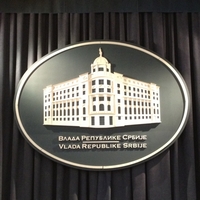Government's first year of work – unfinished anti-corruption activities
 Transparency – Serbia (official chapter of Transparency International) emphasizes that anticorruption reforms do not go by promised dynamic, and that some important anticorruption issues still remain out of focus.
Transparency – Serbia (official chapter of Transparency International) emphasizes that anticorruption reforms do not go by promised dynamic, and that some important anticorruption issues still remain out of focus.
One year ago Transparency welcomed introducing fight against corruption among priorities of another Government of Serbia. At the same time we indicated that it remained unclear from the expose in which direction will certain important regulations and authorities be changed, and that some necessary measures were not even mentioned .
In regards to regulation adoption, in the past 12 months great deal of plans, previously stated, in the Prime minister’s expose, or in Action Plan for implementation of Anticorruption Strategy, remained unfulfilled . Therefore, although deadlines from Action Plan already expired, Law on Anticorruption Agency and Law on Financing of Political Activities still remain unimproved, and not even Draft of Law on Lobbying was published. On the other hand, the fact that the new Law on Whistleblower Protection, which becomes effective this year is positive, although it does not resolve loopholes our organisation pointed out to during public debate . Useful effects can be expected from implementation of new media regulations, although many problems remained unresolved .
Unfortunately, in preparation of most Laws, Prime minister’s promise stated in his expose was not accomplished: „we will allow the business, civil society and other interested parties to participate in all phases of legal acts, from concept laws, drafts and to preparation of by-law acts“. Rules on public debates were not improved, in such manner to comprehend concept law and by-law acts. Number of drafts that are subjected to public debates is however larger than in previous years, but the obligatory debates were not organized for many drafts .
One year ago Prime minister announced establishing of „striking teams for prosecution of organized crime and corruption“, whose legal nature was not explained. One year later, Draft Strategy of financial investigations that mentions „striking groups“ for investigating larger corruption cases was presented, but still without stipulating legal basis for establishing of these bodies . In the meantime, it was published during previous year that already established „working groups“ for investigating „24 privatizations“, cases that Governmental Anticorruption Council pointed out to even before 2012, were cancelled. There are still no comprehensive data on what was determined related to these reports, nor information on the basis of which conclusion can be drawn that the Government begun to systemically discuss Council’s reports published after 2012 .
In Prime minister’s expose (e. g. unlike 2012 and Anti-corruption Strategy from 2013), relation between Government and decisions and recommendations of independent state organs was not even mentioned. Practice in past twelve months, showed opening of series of new problems, besides already existing numerous ones, on a relation between executive authorities – independent organs. Adoption of parliamentary conclusions on annual reports of independent organs by estimation of our organization hasn’t brought any changes . Government ignored obligation to report National Assembly in six months deadline on undertaken measures, and National Assembly hasn’t initiated matter of Government’s accountability for it.
Prime minister’s expose contained plans for rationalisation of public sector, finalisation of reconstruction of enterprises, decrease of budget deficit and grey economy, introducing of e-government and decreasing deadlines for issuing of permits. In some of these areas there were significant improvements in the past 12 months, which we estimate can bring indirectly benefits in anticorruption plan. However, there were no visible changes in regards to „decreased number of employees in public sector… especially of those that are appointed with the help and influence of political parties“ and implementation of functional analysis that should precede it. „Professionalization of managing public enterprises“, although is obligatory by the law for two years already, still hasn’t been implemented.
Finally, during previous year poor and illogical practice of contracting with investors for larger infrastructural projects on the basis of international agreements, with exemption from domestic regulations (e. g. Public Procurement Law, Law on Public-Private Partnership) on bidding, analysis of justification and supervision, is continued.


















